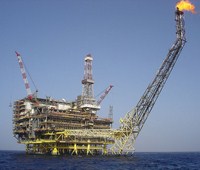Libyan Prime Minister Ali Zeidan was removed Tuesday after failing to stop a tanker from sailing away with an illicit shipment of Libyan oil. The event underscores the crucial role of the oil industry in the country’s current political instability, while further eroding initially optimistic expectations about Libya’s transition and the return to health of its oil industry.
Not so long ago, the political and economic prospects for Libya looked brighter. The toppling of the Gadhafi regime in 2011 set the country on the path of a democratic transition. The oil sector, which is the backbone of the Libyan economy, recovered much more quickly from Libya’s eight-month revolution than most industry analysts had expected. After having come to a virtual standstill in mid-2011, production levels were restored to 1.5 million barrels per day in April 2012, or only slightly below prewar levels. Last year, the International Monetary Fund projected Libya’s GDP would grow by 25.5 percent in 2014.
In recent months, those optimistic expectations have eroded and Libya now finds itself on the brink of collapse, due in no small part to competing claims over the country’s oil wealth. The self-proclaimed autonomous government of Cyrenaica effectively controls the east of the country, including the country’s major oil fields and export terminals. It has been eagerly attempting to sell oil abroad and collect oil revenues independently of the central government in Tripoli, which has fiercely opposed such moves. In January, Libyan naval vessels barred a Maltese-flagged tanker from making port in Es Sider, one of the eastern terminals that the rebels control. In early March, the tanker Morning Glory managed to dock in Es Sider and began loading oil; in spite of threats by the government that Libyan forces would bomb the tanker if it left the port, the ship was nonetheless able to slip away with its cargo, with the fallout costing Zeidan his job.

